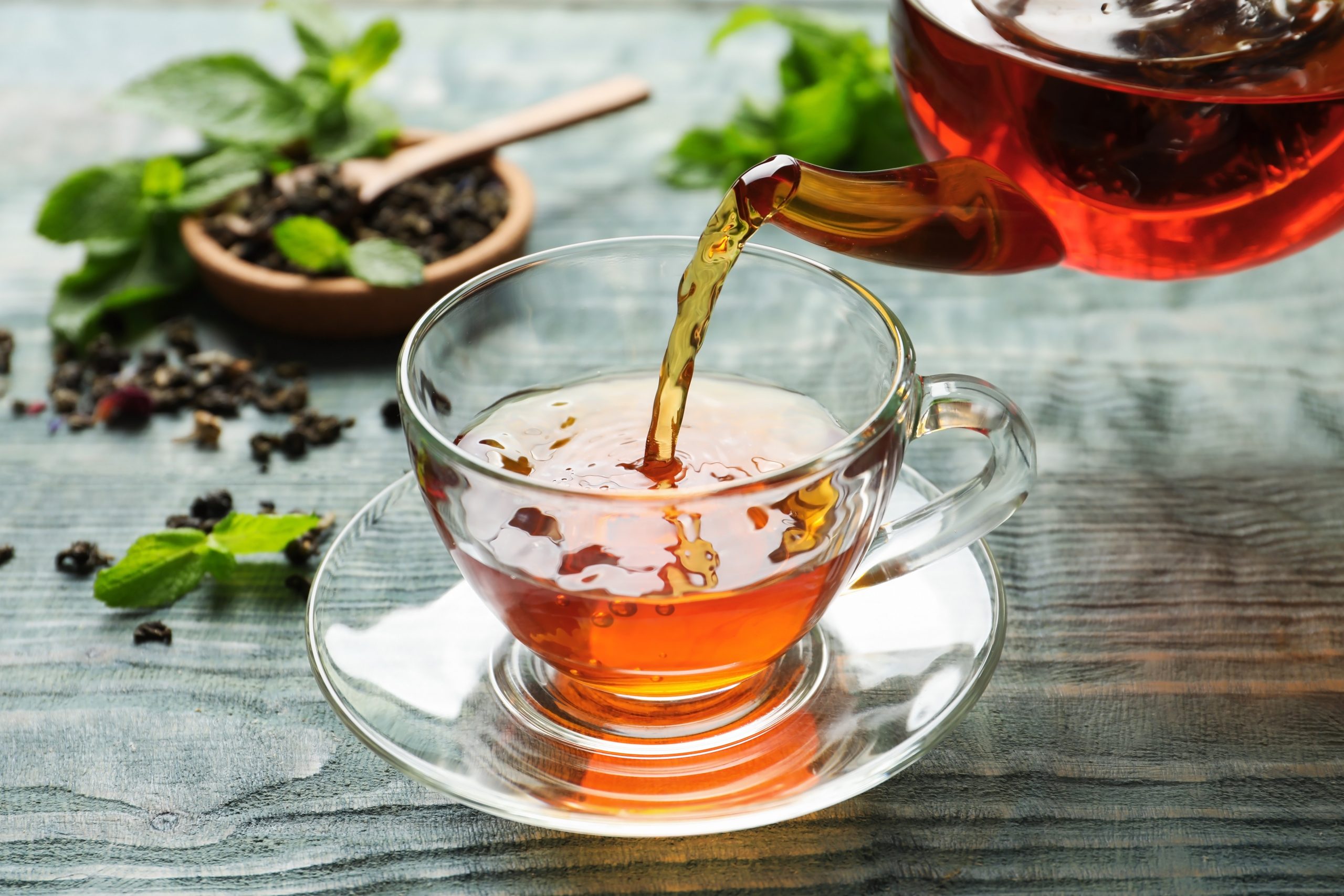A timeless beverage, tea, has been cherished for millennia not only for its rich cultural significance and delightful flavor but also for its profound health benefits. Recent research has shed light on tea's remarkable potential as a natural anti-aging intervention, offering a compelling alternative to pharmacological agents with their inherent limitations. Tea: A Multi-Target Approach …
A timeless beverage, tea, has been cherished for millennia not only for its rich cultural significance and delightful flavor but also for its profound health benefits. Recent research has shed light on tea’s remarkable potential as a natural anti-aging intervention, offering a compelling alternative to pharmacological agents with their inherent limitations.
Tea: A Multi-Target Approach to Healthy Aging
While various pharmacological agents like resveratrol, vitamin C, and rapamycin have shown promise in anti-aging research, they often come with notable drawbacks such as low bioavailability, potential side effects at high doses, or immunosuppressive effects. Tea, however, presents a distinctive advantage due to its multi-target regulatory capacity, favorable safety profile, and widespread availability.
Studies have consistently demonstrated that tea and its bioactive constituents significantly extend lifespan across multiple model organisms. These remarkable anti-aging effects are primarily mediated through the reduction of oxidative stress and the modulation of key aging hallmarks. Beyond longevity, tea exhibits therapeutic potential against common age-related pathologies, including cognitive decline, cutaneous aging, and sarcopenia.
Crucially, epidemiological evidence confirms tea’s excellent safety profile for chronic consumption. Unlike costly pharmaceutical interventions or nutraceuticals, tea offers a socioeconomically equitable approach to healthy aging, combining proven efficacy with global accessibility, affordability, and cross-cultural acceptance.
The Path Forward: Unlocking Tea’s Full Anti-Aging Potential
Despite the compelling evidence, current research on tea’s anti-aging properties has largely focused on green tea, leaving other varieties, particularly fermented teas, insufficiently studied. Considering that fermentation significantly alters tea’s chemical composition and bioactivity profiles, comprehensive investigations into processing methods, phytochemical transformations, and associated biological effects are urgently needed.
Furthermore, while many tea polyphenols demonstrate potent biological activities, their therapeutic potential can be compromised by poor stability, low bioavailability, and rapid metabolic clearance. Future research should actively explore chemical structural modifications to enhance the anti-aging activity and bioavailability of tea-derived compounds.
Beyond polyphenols, other bioactive components, particularly tea polysaccharides, remain undercharacterized in the context of anti-aging. Future studies should also expand beyond isolated compounds to investigate potential synergistic effects among tea constituents (e.g., theanine, vitamins, and polyphenols), as these interactions may enhance bioavailability and provide multi-target modulation of aging pathways.
Additionally, systematic examination of tea’s impact on other hallmarks of aging, including epigenetic modifications, proteostasis, and genomic stability, is crucial to comprehensively understand its influence on longevity and age-related disease progression. The molecular targets and mechanisms mediating tea’s anti-aging effects require systematic elucidation, and the potential role of their context-dependent pro-oxidant activity needs further investigation.
Finally, establishing critical pharmacokinetic parameters such as optimal dosage, treatment duration, bioavailability, and potential drug interactions is vital for developing standardized tea-based interventions. Given the observed interindividual variability in tea’s toxicity profile, robust clinical trials are urgently needed to validate its anti-aging efficacy and safety, alongside the development of standardized consumption guidelines.
Embrace the Power of Tea
In summary, extensive evidence positions tea and its bioactive constituents as promising natural anti-aging interventions. Regular tea consumption represents a practical, cost-effective strategy for promoting longevity and healthspan extension, while potentially mitigating age-related pathological conditions. The multifaceted mechanisms of tea compounds underscore their potential as accessible nutraceuticals for healthy aging. As research continues to unravel the complexities of this ancient beverage, the future of healthy aging may very well be steeped in a cup of tea.








